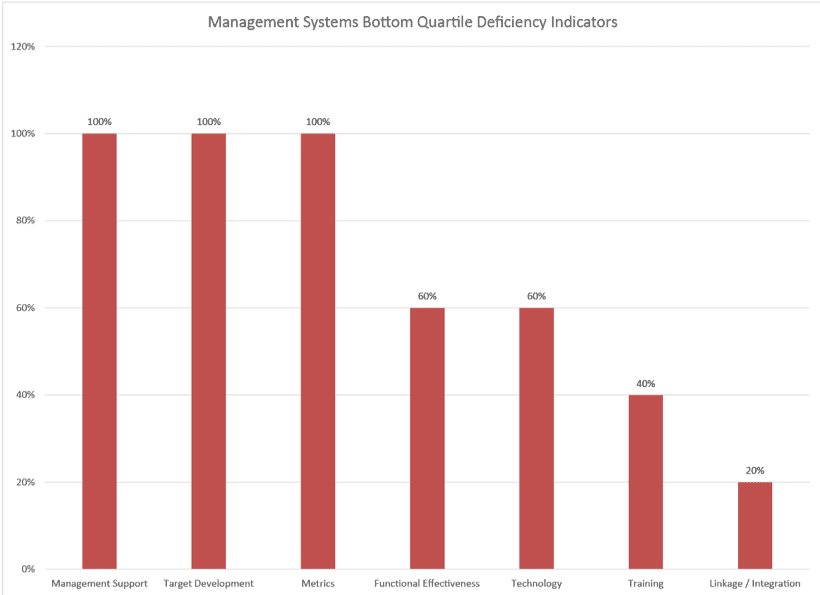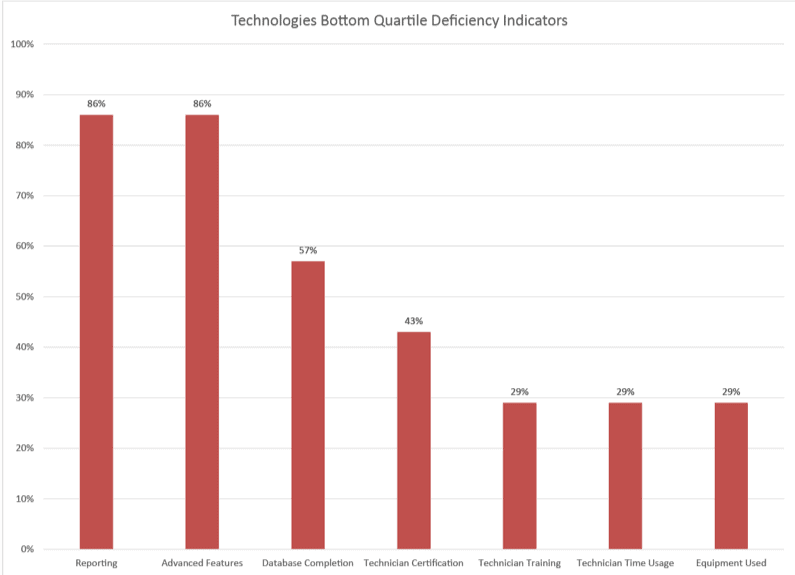In the final installment of our Reliability Centered Maintenance Audits white paper, a cross-section review of CBM / PdM Audit data taken in chemical, oil, building product, and steel manufacturers over the past few years was performed to try and highlight outliers within the audits that negatively affected the Management Systems and Technologies cumulative scores.
Multiple key indicators that contribute to facilities scoring in the Bottom Quartile on their Management Systems Rankings were identified during this study.
Data reviewed found:
- 100% of the participants had glaring deficiencies in their Management Support, Target Development, and Metrics portions of the audits.
- 60% of the participants scored poorly in their Functional Effectiveness and Technology sections, with 40% of them receiving low marks for their Training review.
- Linkage/Integration scores were also found to be in the Bottom Quartile for 20% of the audits reviewed, and in the Bottom Middle Quartile for 40% of these facilities. Staffing was another section of the audit that negatively impacted Management Systems Overall Rankings in this study, with 80% of all facilities scoring in the Bottom Middle Quartile for this indicator.

Data reviewed in regards to the Technologies Section of these audits found:
- Reporting and Advanced Feature Usage were two items scored in the Bottom Quartile for 86% of facilities sampled.
- Database Completion was another section that negatively affected 57% of all facilities reviewed.
- Technician Certifications were found to be a problem 43% of the time.
- Other notable items included Technician Training, Technician Time Usage, and Equipment Used sections that were found to be in the Bottom Quartile for 29% of these facilities.

CONCLUSION
As manufacturing companies continue to push their production equipment to the brink to squeeze out every last ounce of capacity, the reliability of their machine assets becomes even more important. The difference between successful maintenance programs that actually produce cost savings and increased machine reliability and unsuccessful ones that start out strong but then fail to deliver is ongoing assessments of the program itself. CBM/RCM programs need constant monitoring and tweaking to ensure that machines are being regularly maintained and redundancies eliminated. In addition, there should also be a system in place for tracking the program’s effectiveness. Regular auditing of CBM/RCM programs ensures that companies are receiving a positive return on what is surely a large but worthy investment.
Contact us to schedule your CBM/PdM audit.
